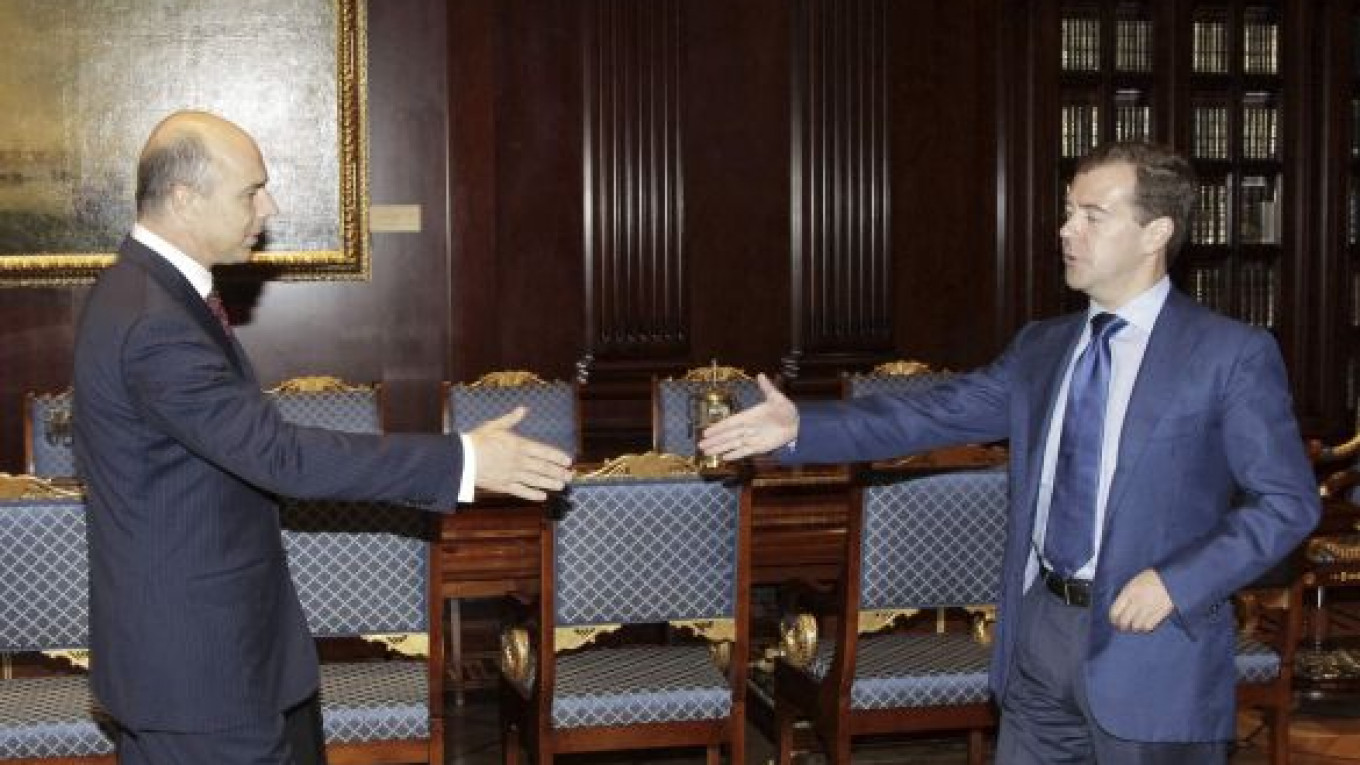Prime Minister Vladimir Putin has risked harming the country's economy by firing his finance minister, Anatoly Chubais said Wednesday, adding to scattered warnings of crisis since Putin confirmed that he would reclaim the presidency.
Chubais, the architect of liberal economic reforms in the 1990s and Kremlin chief of staff under Boris Yeltsin, said the prime minister no longer had top-notch professionals running the economy at a time of dangerous global turmoil.
Other economists and businesspeople have also voiced worry about the economic and political uncertainty caused by Alexei Kudrin's departure as finance minister on Monday and the high-level disagreements it has exposed over Putin's plan to swap roles with President Dmitry Medvedev in the forthcoming elections.
Though public dissent is patchy, some have gone so far as to say the return of Putin, who succeeded Yeltsin as president in 2000, risks stagnation that could create deeper conflicts.
Chubais, who now heads state high-technology company Rusnano, wrote in a blog entry that Kudrin's departure could have dramatic consequences: "This event, whatever the reasons for it, creates serious risks for the country. There are no longer any professionals at such a high level who can work in the current political configuration."
"This is especially dangerous," he wrote, "against the background of a looming second wave of the global economic crisis. In such unfavorable circumstances, the consequences of his resignation could be dramatic."
Kudrin said he would not serve in a Medvedev government and was forced to resign after attacking the president's economic policies in an unusually bitter and public dispute.
His interim replacement, Anton Siluanov, said Tuesday that he would implement the spending increases that Kudrin had criticized, but he added that further expenditure would threaten economic stability: "Additional spending may create risks," he said.
"We should not raise spending without finding corresponding sources of revenue."
Chubais is despised by many Russians for allowing the country's most valuable assets to fall into the hands of a small circle of businessmen who became super-rich after the collapse of the Soviet Union, but his views are still respected at high levels.
No other leaders have joined Kudrin in openly dissenting against Putin's plan — doing so would be political suicide — and the ruling United Russia party rallied behind him at a weekend congress.
But although opinion polls show that Putin and Medvedev are still more popular than any other politicians, their ratings have slipped and the Internet has been full of criticism of how they have carved up power between them.
A portrait has been circulating on the Internet showing Putin's face superimposed on a portrait of Leonid Brezhnev, whose rule of the Soviet Union from 1964 to 1982 is widely seen as one of economic and political stagnation.
Some political analysts say the power-sharing "tandem" set up by Putin and Medvedev in 2008, when the former yielded the presidency to his protege because of a constitutional two-term limit, has become less effective.
"The tandem has lost its tempo," said Gleb Pavlovsky, president of the Foundation for Effective Politics.
Medvedev himself has hinted that changes are needed in the political system established under Putin. In veiled criticism of the system, he said in a speech in June that Russia must avoid one-man rule to avert stagnation.
A Message from The Moscow Times:
Dear readers,
We are facing unprecedented challenges. Russia's Prosecutor General's Office has designated The Moscow Times as an "undesirable" organization, criminalizing our work and putting our staff at risk of prosecution. This follows our earlier unjust labeling as a "foreign agent."
These actions are direct attempts to silence independent journalism in Russia. The authorities claim our work "discredits the decisions of the Russian leadership." We see things differently: we strive to provide accurate, unbiased reporting on Russia.
We, the journalists of The Moscow Times, refuse to be silenced. But to continue our work, we need your help.
Your support, no matter how small, makes a world of difference. If you can, please support us monthly starting from just $2. It's quick to set up, and every contribution makes a significant impact.
By supporting The Moscow Times, you're defending open, independent journalism in the face of repression. Thank you for standing with us.
Remind me later.






